Enrol Now by following the simple steps below!

Effective Employee Communication
In today's competitive business landscape, fostering effective communication is vital for a productive and successful organisational culture. Join us for 2.5 days as you master conflict resolution, negotiation tactics, and employee program planning.Gain essential skills in investigative techniques and understanding the Singapore Tripartite System. Engage in hands-on learning activities like practical investigation and conflict negotiation simulations to address workplace concerns confidently.
At the end of the course, you’ll be equipped with the skills to elevate your communication strategies, create a cohesive and engaged work environment and empower your organisation with communication excellence.
Course Outline
- Identify and investigate employee issues using analytical techniques for effective resolution.
- Develop conflict resolution strategies aligned with organizational policies and practices.
- Master negotiation methods to facilitate successful resolution of employee conflicts.
- Implement agreed-upon outcomes and create effective documentation for conflict resolution.
- Strengthen employee relationships through impactful programs based on industry best practices.

Skills Acquired
- Investigative Techniques: Become proficient in investigative techniques and understand how they play a role in identifying relationship issues.
- Understanding of Singapore Tripartite System: Know the role of Tripartite parties in resolving grievances and disputes.
- Conflict Resolution Strategy and Planning: Develop cohesive conflict resolution plans aligned with organisational policies.
- Negotiation Tactics: Utilise negotiation methods to skillfully mediate and solve issues during conflict resolution meetings.
- Employee Program Planning: Develop effective programs that enhance employee relationships and foster engagement.
Hands-on Learning Activities
- Practical Investigation: Apply investigative techniques in a group discussion environment to effectively recognise and address concerns.
- Conflict Negotiation Simulation: Engage in simulated negotiation sessions to enhance your skills in resolving conflicts.
- Conflict Documentation: Learn how to create and assess documentation to support conflict resolution.
Competency Assessment
Written & Case Study
- Industry best practices in managing employee relationships
- Develop solutions to resolve employee conflicts and disputes
- Identify potential employee relationship issues
Step 1 (Select Training Center)

Step 2 (Select Date)
- Select the time slot to enroll the course
- Available
- Selling Fast
- Full Enrollment
Course Fees & Subsidies
| SMEs | |
| Course Fees | |
| 70% SkillsFuture (SSG) Subsidy | |
| Nett Fee | |
| Non SMEs | |
| Course Fees | |
| 50% SkillsFuture (SSG) Subsidy | |
| Nett Fee | |
| Additional Support | ||||
Additional Support via Absentee Payroll |
||||
|
||||
Up to 90% Additional Subsidy from SkillsFuture Enterprise Credit (SFEC) |
||||
- Nett Fee is subject to 9% GST charged based on the full course fees before subsidy.
- Absentee payroll is claimable up to $4.50 per hour, capped at $100,000 per enterprise per calendar year.
- Subjected to individual company’s budget availability for the Enterprise Innovation Scheme. Each company can only either the 400% Tax Deduction option OR the 20% Cash Payout option. For more information, please refer to https://www.iras.gov.sg/schemes/disbursement-schemes/enterprise-innovation-scheme-(eis)
- Subjected to individual company’s budget availability for SFEC. For more information, please refer to https://www.enterprisejobskills.gov.sg/content/upgrade-skills/sfec.html
- Registered or incorporated in Singapore
- Employment size of not more than 200 (at group level) or with annual sales turnover (at group level) of not more than $100 million
| Singapore Citizens (40 years and above) | |
| Course Fees (Before GST) | |
| 9% GST | |
| 70% SkillsFuture (SSG) Subsidy | |
| Nett Fee | |
| Singapore Citizens (21-39 years old) & PR | |
| Course Fees (Before GST) | |
| 9% GST | |
| 50% SkillsFuture (SSG) Subsidy | |
| Nett Fee | |
| Additional Support | |
|
SkillsFuture Credits eligible for Singapore citizens aged 25 & above |
|
|
PSEA eligible for Singapore citizens aged below 30 |
|
|
NTUC UTAP members have up to 50% auto reimbursement on out-of-pocket cost |
|
- Nett Fee are inclusive of GST charged based on the full course fees.
- Subjected to individual’s eligibility and availability of SkillsFuture Credit.
- NTUC UTAP reimbursement is capped at $250 for members aged below 40 or $500 for members aged 40 & above.
Certification
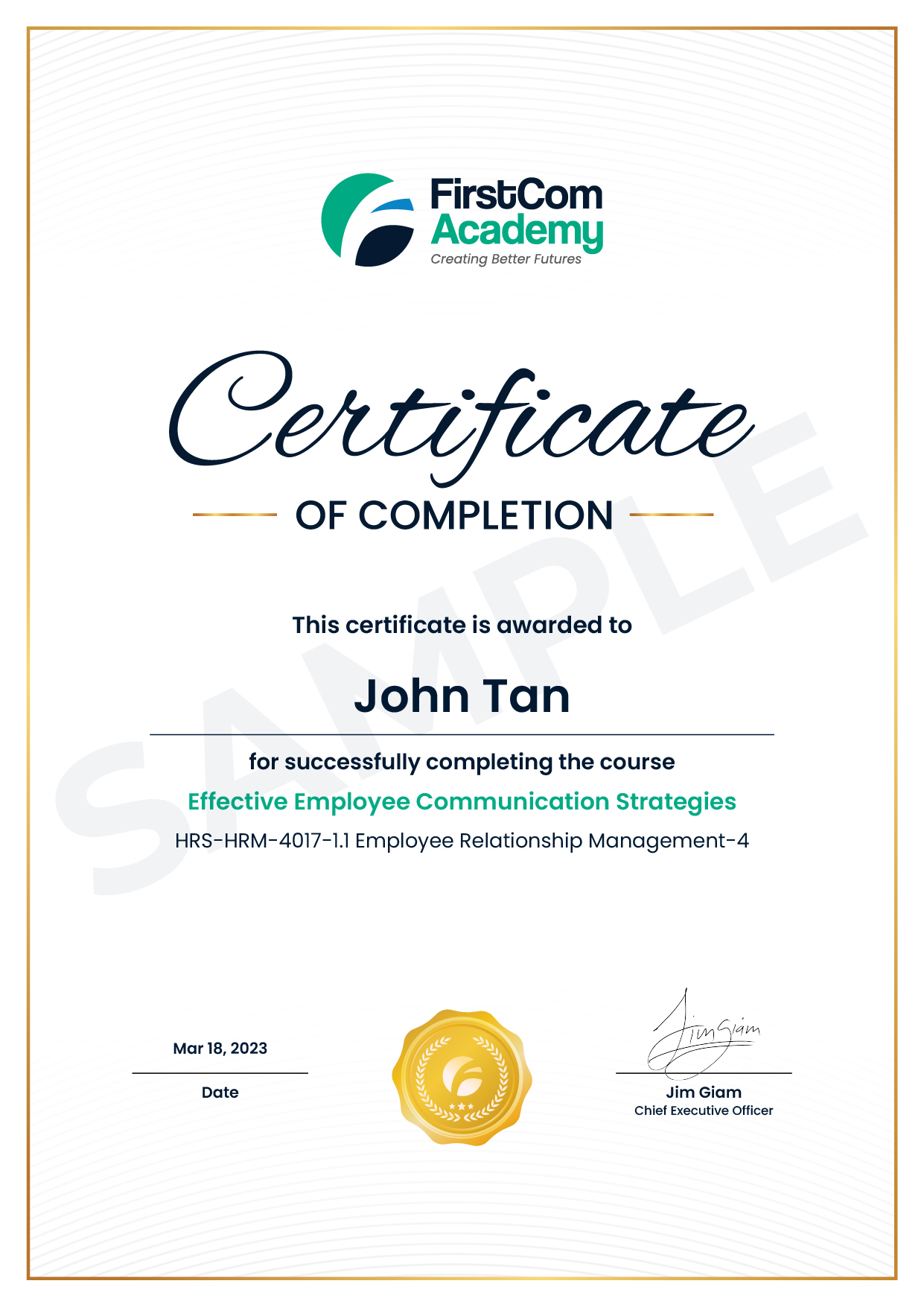
3 Reasons Why We Can Ensure Maximum Skills Transfer Within 24 Hours of Training
Learn from and interact with certified trainers with years of proven training and industry experience

Localised syllabus and case studies co-curated with proven subject matter experts
FirstCom Academy partners up with many proven industry experts to develop short and effective courses built upon the Singapore’s landscape, allowing learners to learn based on familiar local context.
Unleash Your Potential with In-Person Training at Our Centers of Excellence
Elevate your skills through interactive learning experiences

Lifelong Learning Insitute (LLI) Training Center
Our training center at Lifelong Learning Insitute (LLI) makes use of the building’s state-of-the-art facilities and modern amenities to create a conducive environment for learning. As you step into our thematic classrooms centered around aspirational travel locations, you’ll be inspired to grow and empowered to succeed.
Conveniently located just a short sheltered walk away from Paya Lebar MRT Station, accessing the LLI Training Center is effortless for commuters. For those driving, the institute is easily reachable via PIE and ECP, with ample parking available.
Woods Square Training Center
Strategically located at Woods Square, our Woodlands Training Center is minutes’ walk away from Woodlands, Woodlands North and Woodlands South MRT stations, as well as Woodlands bus interchange.
It is also easily accessible by the SLE, BKE and upcoming NSE. Food choices are plenty at Wood Square too!
Maximum skills transfer through hands-on on-premise training approach











Rated 4.9 Google Review star ratings stars by more than 17,339 happy learners on Google Reviews
Start Your Learning Journey with FirstCom Academy Today





















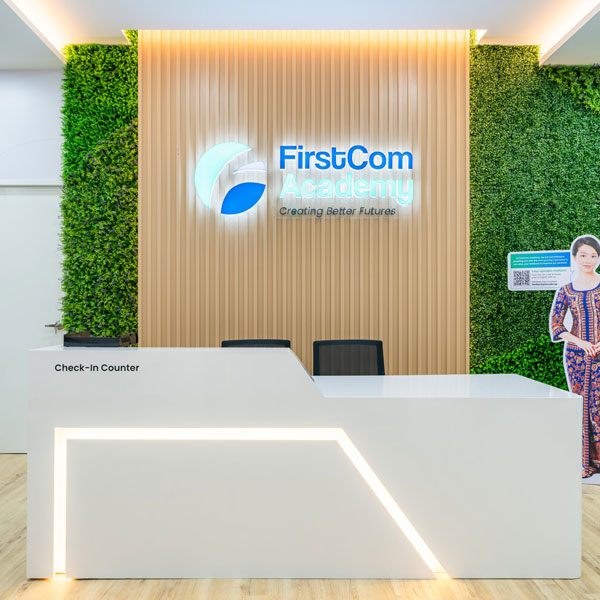
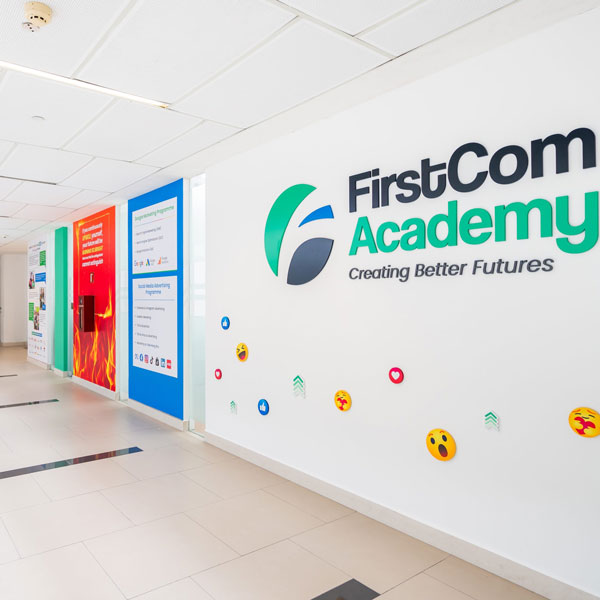





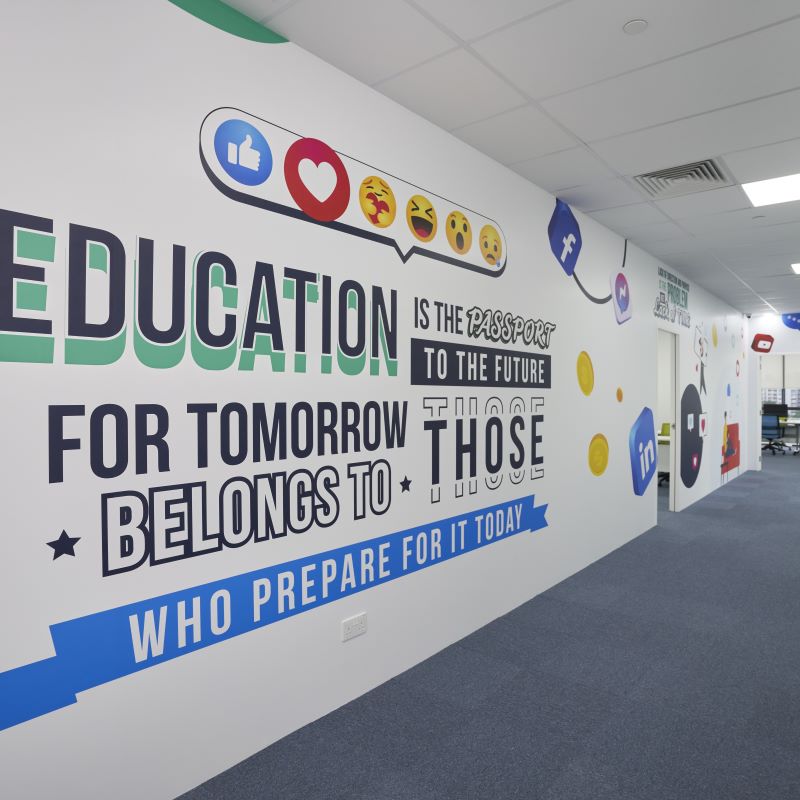

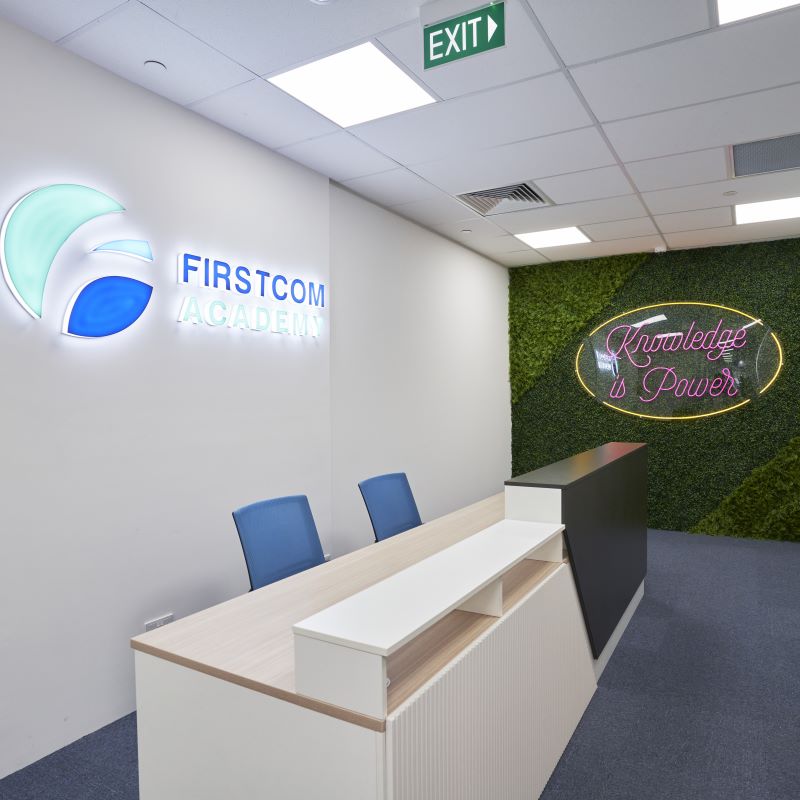








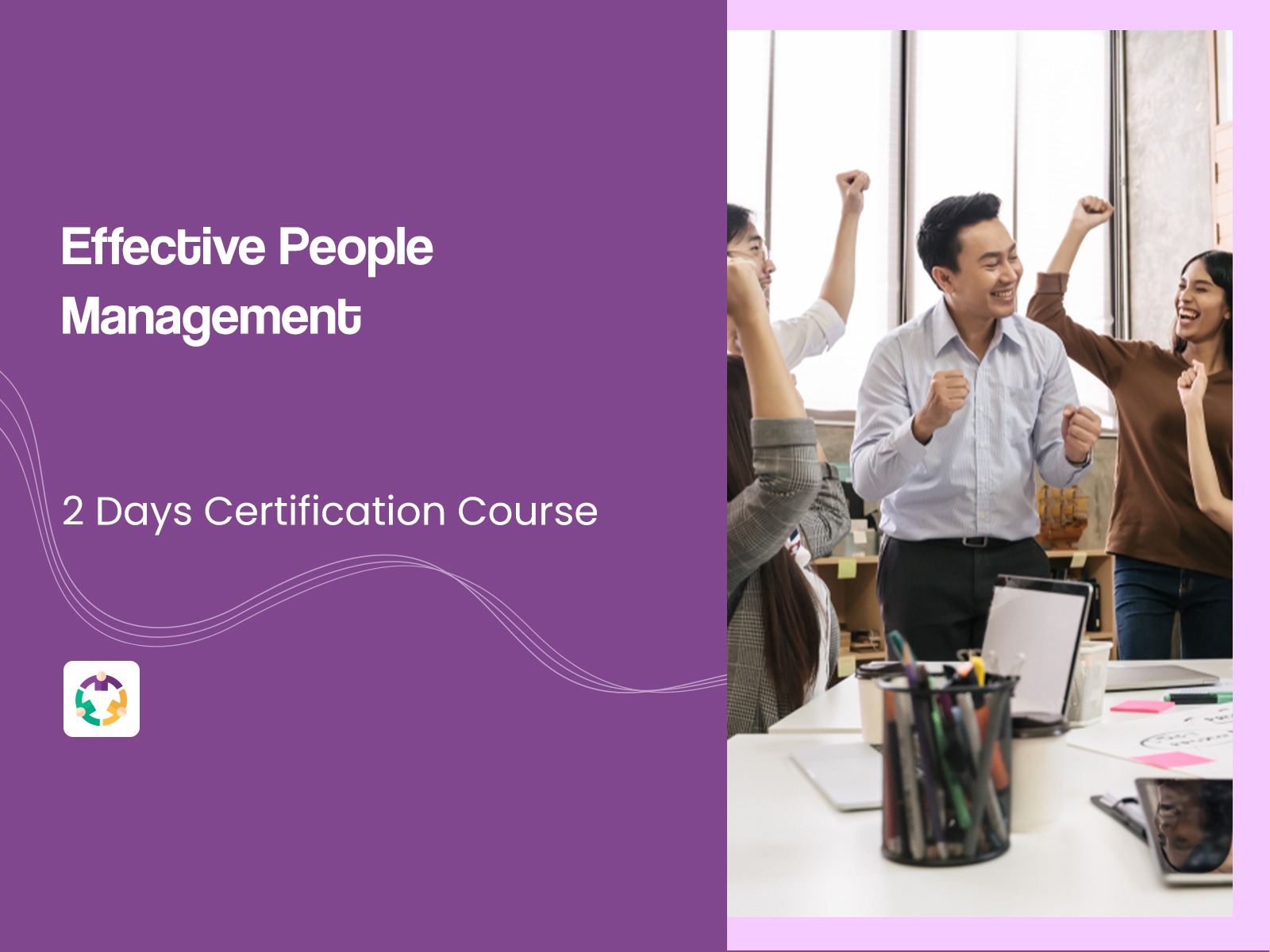
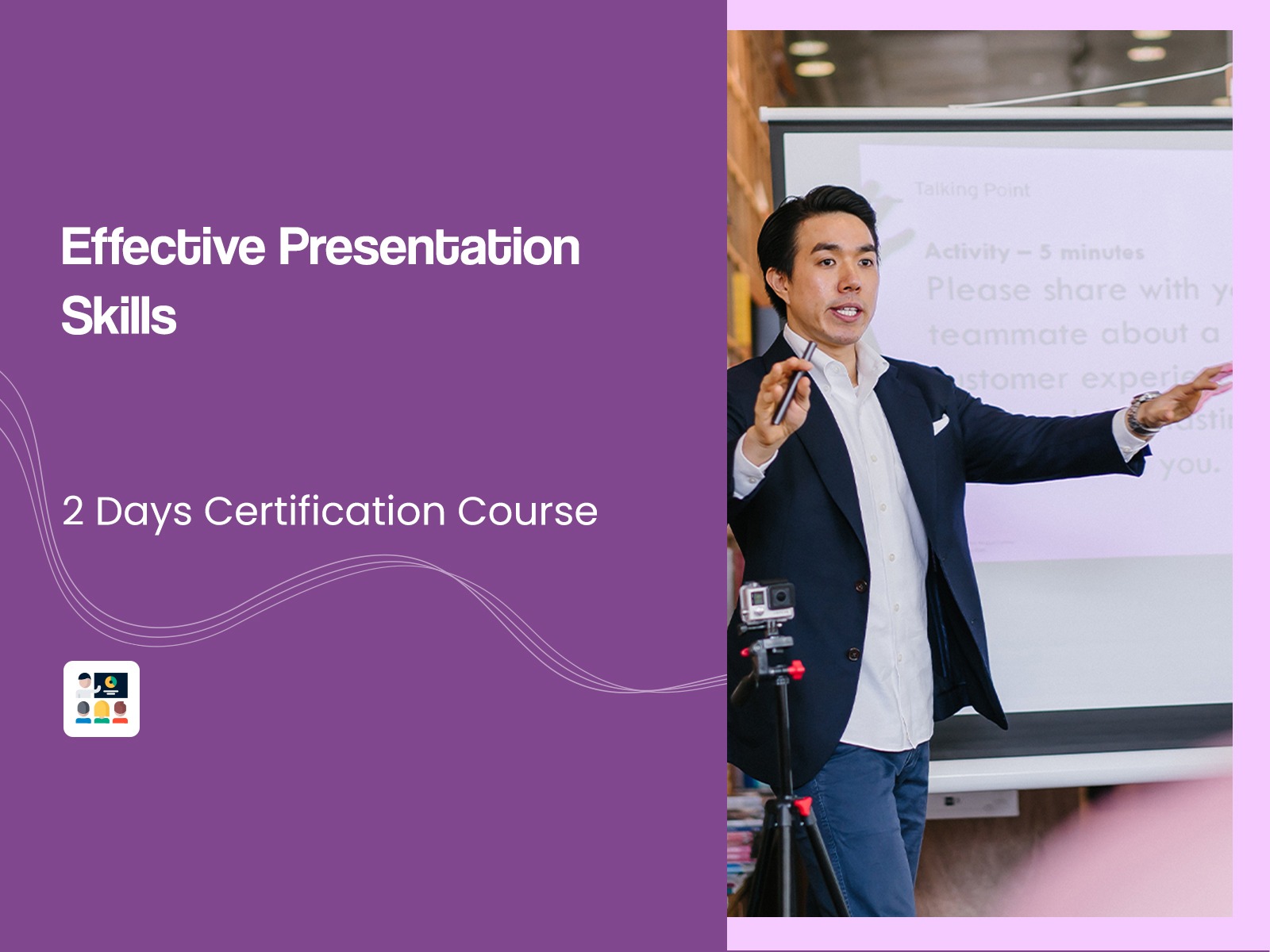





 ENROLL NOW
ENROLL NOW